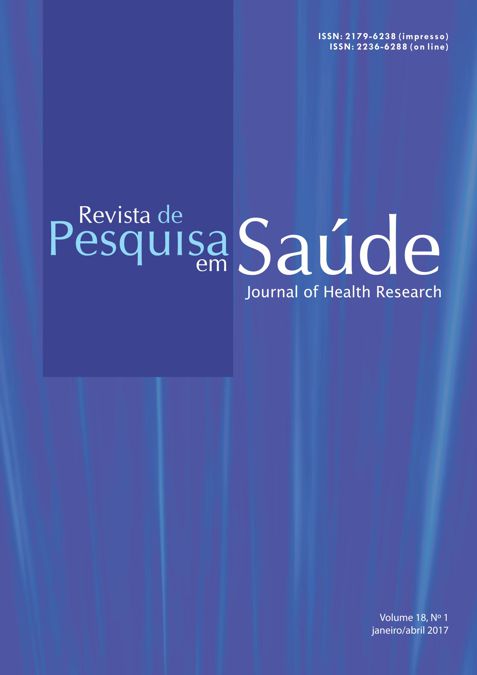CONHECIMENTO SOBRE REAÇÃO ADVERSA A MEDICAMENTOS ENTRE GRADUANDOS DE FARMÁCIA E ENFERMAGEM / KNOWLEDGE ABOUT ADVERSE DRUG REACTION BETWEEN PHARMACY AND NURSING STUDENTS
Keywords:
Farmacovigilância, Estudantes de Enfermagem, Estudantes de Farmácia, Conhecimento.Abstract
Resumo
Introdução: Em função dos diversos eventos relacionados aos medicamentos, surgiu a farmacovigilância com o intuito de acompanhar
a ocorrência e o controle das reações adversas a medicamentos, além das interações medicamentosas, desvios de qualidade
e perda de eficácia. Os principais profissionais de saúde que estão diretamente envolvidos no processo da farmacovigilância
são os farmacêuticos, que são profissionais notificadores ativos, e os enfermeiros que trabalham com o preparo e administração
dos medicamentos. Objetivo: Descrever o conhecimento e as atitudes dos graduandos de enfermagem e farmácia de
uma universidade pública acerca das Reações Adversas a Medicamentos. Método: Trata-se de um estudo transversal-descritivo,
realizado com formandos dos respectivos cursos. Para a coleta de dados aplicou-se um questionário estruturado. Resultados:
A análise apontou predominância do gênero feminino entre os entrevistados. Os conhecimentos adquiridos sobre reação adversa
a medicamentos foram considerados insuficientes ou atendendo parcialmente na opinião de 57,8% dos estudantes. Sobre a
definição de reações adversas a medicamentos, 21,05% responderam incorretamente. Todos informaram adotar alguma atitude
em presença de suspeita de RAM, como a notificação e suspensão do medicamento. Conclusão: Embora os entrevistados
possuíssem algum conhecimento sobre a identificação das RAM e atitudes a serem tomadas frente ao evento, como notificação
e suspensão do medicamento, eles apresentaram dificuldades como agir adequadamente, aumentando a probabilidade de
haver falha nesse processo.
Palavras-chave: Farmacovigilância. Efeitos colaterais e reações adversas a medicamentos. Estudantes de ciências da saúde.
Abstract
Introduction: Due to the different events related to medication, pharmacovigilance emerged with the purpose of accompanying
the occurrence and control of adverse drug reactions (ADR), quality deviation and lack of efficacy. Most health professionals
directly involved in the pharmacovigilance process are pharmacists, adverse event reporting professionals, and nurses who
work in the preparation and administration of drugs. Objective: To describe the knowledge and attitudes of undergraduate
nursing and pharmacy students of a public university in relation to adverse drug reactions. Method: A cross-sectional descriptive
study performed with undergraduate students of the mentioned courses. A structured questionnaire was used for data
collection. Results: The analysis indicated the predominance of the female gender among the interviewed parties. The knowledge
acquired on adverse drug reactions was considered as insufficient or partially sufficient in the opinion of 57.8% of the
students. In relation to the definition of ADR, 21.0% answered incorrectly. All informed that they adopt some attitude in the
presence of suspected ADR, such as notification and suspension of the drug. Conclusion: Although the interviewed parties had
some knowledge on the identification of ADR and attitudes to be taken in the face of such event, such as notification of the event
and suspension of the drug, there were deficiencies on adequate action (where and how to proceed), increasing the probability of
failure in the process.
Keywords: Pharmacovigilance. Drug-Related side effects and adverse reactions. Students Health Occupations.








